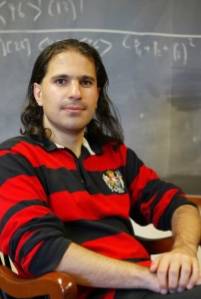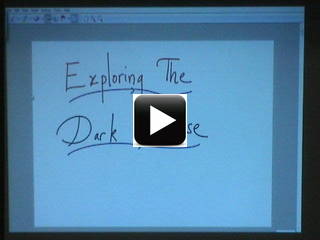There is strong evidence that most of the mass and energy dominating the
dynamics of the universe at the largest scales is not made of ordinary
matter, but is something new– “dark energy” and “dark matter.”
Understanding the dark sector poses fascinating challenges to
theoretical physicists. More excitingly, a slew of experiments ranging
from satellites to particle accelerators to deep-underground detectors
are poised to shed a great deal of light on this subject in the very
near future. In this talk I will describe these developments, and
explore what we might learn about the dark universe in the next five
years.
 |
Nima Arkani-Hamed is a theorist with wide-ranging interests in
fundamental physics. He received his B.Sc in physics and mathematics
from the University of Toronto in 1993, his Ph.D. in physics from UC.
Berkeley in 1997, and did post-doctoral work at the Stanford Linear
Accelerator Center, before joining the Berkeley faculty in 1999. In
2001 he joined the physics department at Harvard as a professor of
physics, before moving to his current position as professor in the
school of natural sciences at the Institute for Advanced Study in 2008.
He was awarded the Gribov Medal of the European Physical Society in
2003, and in 2008 won the Raymond and Beverly Sackler Prize given at Tel
Aviv University.
Introduction by David Gross.
|
 Other video options
Other video options
